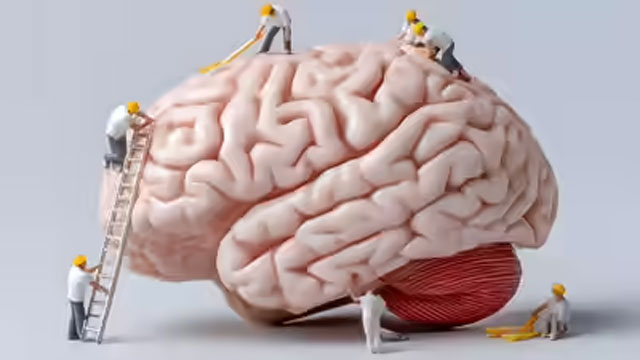Daijiworld Media Network - Mumbai
Mumbai, Oct 17: In today’s world of digital overload, brain fog, and forgetfulness, one solution stands out as remarkably simple and powerful: exercise. Beyond shaping the body, regular physical activity profoundly affects the brain, enhancing memory, focus, and emotional wellbeing. According to the World Health Organization, over a quarter of adults globally are insufficiently active, a trend linked not only to physical decline but also cognitive deterioration. Leading neuroscientists, like Dr. Wendy Suzuki of New York University, emphasize that exercise literally reshapes the brain.
Dr. Suzuki’s research demonstrates that even moderate physical activity strengthens the brain. Participants who exercised for 45 minutes, two to three times a week, showed measurable improvements in memory, mood, and focus. Exercise increases blood flow to the brain and stimulates the hippocampus, the area responsible for learning and memory, gradually making it stronger and thicker — akin to building mental muscles.

For beginners, Suzuki’s studies reveal that just two to three 45-minute aerobic sessions per week can begin to transform brain function. Activities like cycling, brisk walking, swimming, or dancing that raise and maintain heart rate are effective. Within weeks, participants reported sharper memory and an uplifted mood, highlighting how quickly the brain responds to consistent movement.
While starting with a few sessions is beneficial, further gains come with increased frequency. Exercising four to five hours a week — or around 45 minutes daily for five days — optimizes hippocampal growth, prefrontal cortex function, and emotional wellbeing. Both longer and more frequent sessions strengthen decision-making, planning, and cognitive control.
Aerobic exercises flood the brain with oxygen and stimulate brain-derived neurotrophic factor (BDNF), a key protein that enhances neuron growth and connectivity, boosting learning and recall. Exercise also lowers stress hormones like cortisol, protecting memory-related brain regions from shrinkage and helping the brain stay alert and resilient.
Improvements in mood often precede cognitive gains. Endorphins and serotonin released during exercise lift emotional state, priming the brain to absorb, retain, and process information more effectively. Many people notice their clearest thinking or most creative ideas post-workout, illustrating this brain-mood feedback loop.
All movement matters. Short bursts of activity — climbing stairs, dancing while cooking, or brisk walks — contribute to brain health. Consistency, rather than perfection, is key. Over time, these small efforts build a brain that is “big, fat, and fluffy,” meaning resilient, healthy, and vibrant.
Regular aerobic exercise is not just a tool for fitness; it is a prescription for sharper memory, enhanced focus, better mood, and a stronger, more adaptable brain. Even small, consistent efforts can yield life-changing cognitive benefits.